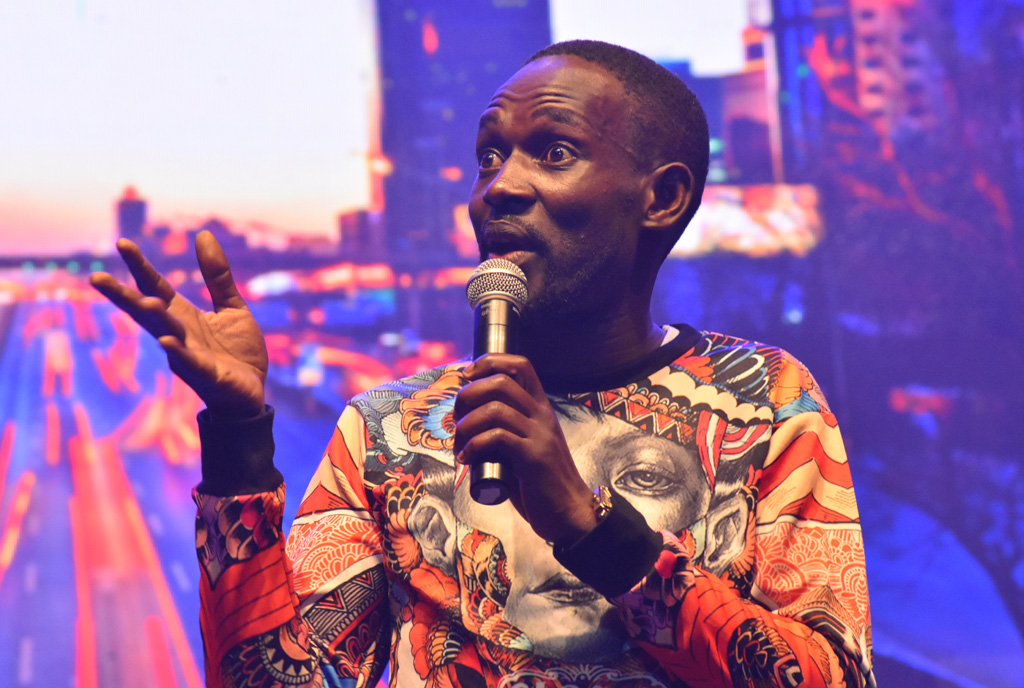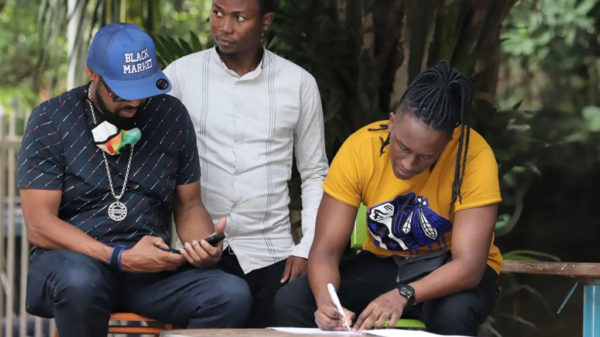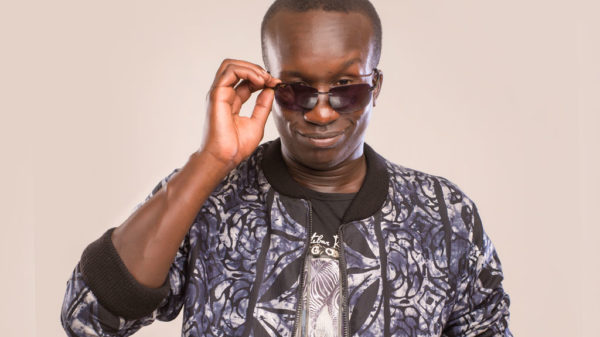
Dixon Aine with some of the girls that he equips with skills at his organisation. PHOTO BY GILLIAN NANTUME
Helping needy: He may be a graduate of business administration, but that is not the path Dixon Aine wanted to take. Looking back to his journey growing up, he had different dreams for what he wanted to do.
Dixon Aine, a graduate of Business Administration, was rejected by his father for reasons he did not know. The 37-year-old struggled through life, trying to find the answers to his never-ending question about his father’s rejection. This built in him a compassion for helping the underdog in society. He now runs his own community-based organisation, Sustainable Youth Development Foundation (SYDF).
Most people whose backgrounds are similar to yours yearn for white-collar jobs or jobs that bring in huge profits. Why do you feel drawn to the disadvantaged?
Though I was orphaned, I was fortunate enough to get an education. My first job was with Save Street Children Uganda (SASCU), a child rights agency, where I worked for more than five years. I worked with children living on the streets, rehabilitating and reintegrating them back into their original communities. I began to realise that these children — who had turned into youth — struggled to get integrated into the employment system.
This propelled me into thinking about how this challenge can be overcome. In November 2015, I started SYDF. Our theory of change is to combat unemployment among the youth through hands-on skills training and development in tailoring, hairdressing, bakery, paper bags and liquid soap making. We also have our own products such as Obutonde Eco bags, No Shame reusable sanitary pads, Kyo-Na liquid soap and hand wash.
Many people believe street children can work but they just do not want to. Does this belief hold water?
In reality, street children want to work, much more than those who have families, but they never get the opportunities. There are many examples of people who have come from the streets after they were offered opportunities and they have succeeded in life. The truth is, there is nothing for free on the streets. These children have to work out means of survival, including collecting scrap and mineral water bottles for sale.
Which street child lives in your memory to date?
One time, in 2012, we went for a street outreach in Makerere, Kivulu (a slum in Kampala). There was one older boy who made sure the young ones got food before the older ones. He actually ended up missing out on the food but his main concern was if we could rescue the young ones off the streets. He had grown up on the streets and he was now like a father to them. They used to call him Namba Emu (Number One).
When I went back for a second outreach, I found that Namba Emu had died. One night, the police had rounded up street children, including Namba Emu. He died in the police cells. His desire to help the weak in a world where only the strong can survive really touched me, and it became my goal to rescue as many children from Makerere Kivulu as SASCU could afford to.
How did you rehabilitate those street children?
After convincing them to get off the streets, we would take them to the rehabilitation centre, make sure they took a bath and changed clothes, and then give them food and show them where to sleep.
After, we would start on the paperwork through the probation office for a care order. Of course, there would have been a series of interviews with this particular child on different street outreaches, sometimes different social workers would interview the same child on different occasions to assess if this child is ready for rehabilitation.
This helped us avoid bounce-back cases. Rehabilitation meant taking them back to school and giving them psychosocial support while tracing for their families for reintegration.
Where did you get the funds to start your own organisation?
I had saved Shs600,000 and this helped me pay rent for three months and buy a workstation. Some of my friends helped me get started in a number of ways. Some of the allowances I got from attending different meetings also came in handy.
What kind of people do you train now?
Our main clients are single mothers in the informal sector who bring their children to acquire skills. There are those who can pay for the lessons, those who can contribute something, and those who are interested but do not have the money. For the street children who want to learn a skill, we work in partnership with the different organisations that rehabilitate them.
For the rest, payment contributions are based on assessment. Our dream is to make these services free, but because we need sustainability, we ask for a small contribution.
What are the benefits you have achieved from employing yourself?
Emotionally, I go to bed every night feeling proud because I am contributing to this nation in a small way. Recently, SYDF won an award for the work we are doing.
Socially, I get to meet people I would probably never have met. There are no financial benefits though, and I am actually in debt. I know this is a short-term challenge and we will earn from the products we manufacture.
What advice do you give to people who think there is a lot of money to be made in charity organisations?
If they think it is easy, they should try starting their own organisations.
































































